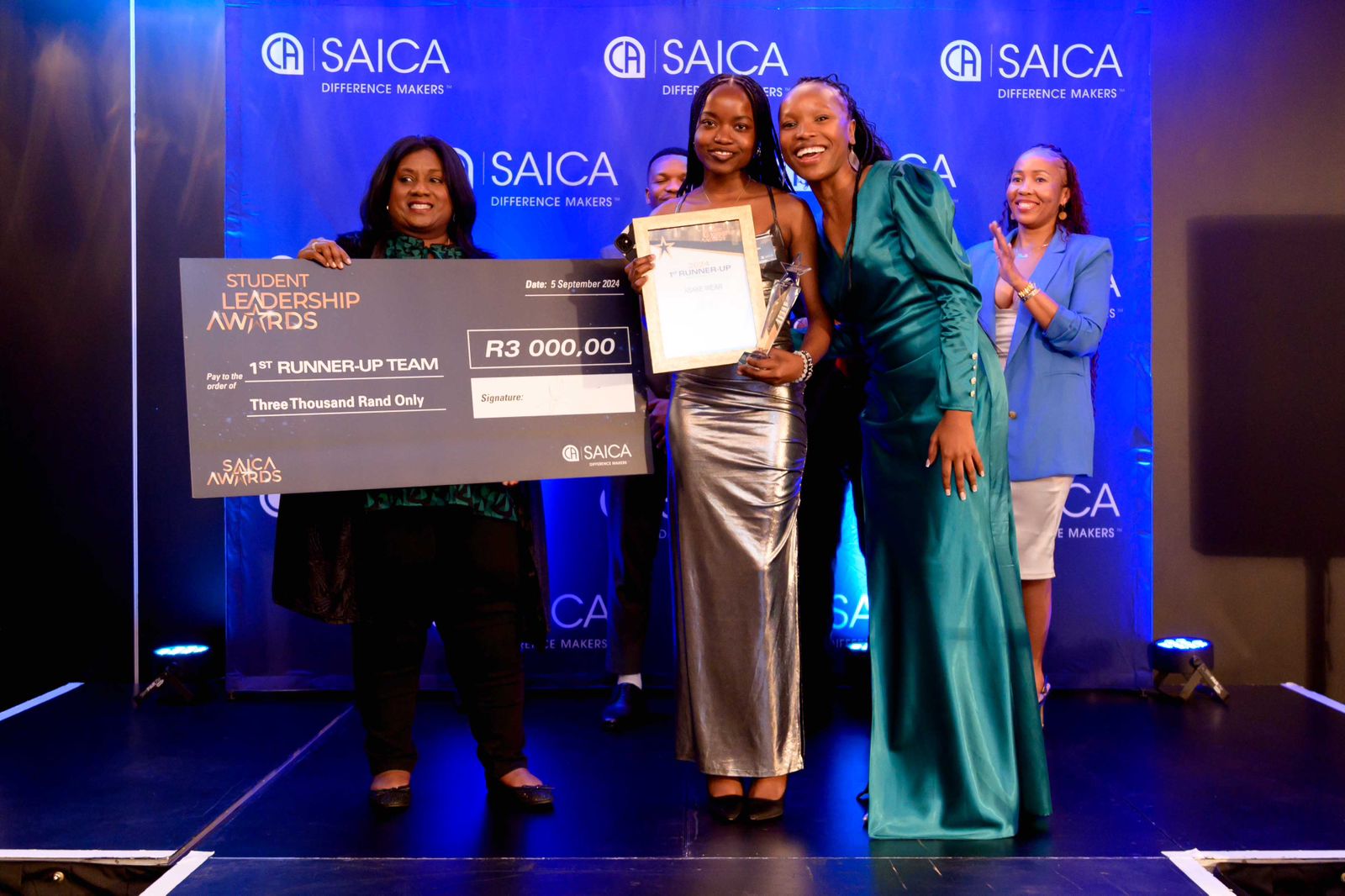WSU STUDENTS' PERIOD POVERTY SOLUTION GETS A NOD FROM SAICA

WSU students, Unathi Mashaba (19) and Kanalelo Motloung (20), have earned national recognition as first runner-up in the 2024 SAICA Student Leadership Summit for their business, ASAKE WEAR, which addresses period poverty.
SAICA invited students to put together a business case focussed on Sustainable Development Goal (SDG) and illustrate how they would empower and improve the country through a community-based project that works towards solving one or more of the United Nations’ SDGs.
Mashaba and Motloung presented ASAKE WEAR, an innovative brand that produces reusable period underwear, made partially from plant waste, dually addressing the pertinent issues of period poverty as well as environmental sustainability.
Mashaba, who is currently pursuing her Bachelor of Accounting Sciences degree at WSU said that their idea stemmed from the belief that no child should miss school due to menstruation.
“Creating an affordable menstrual product for individuals experiencing period poverty or those who use inadequate menstrual products is of paramount importance to me. I firmly believe that everyone deserves a fair opportunity in life. No individual should be unable to attend school due to menstruation and the inability to afford sufficient menstrual products. Menstruation should not be a luxury,” said Mashaba.
Mashaba attributed their success to teamwork, innovative thinking, and thorough preparation, emphasising the need for students to actively hone their leadership skills.
“Student leadership plays a crucial role in driving positive change as it empowers students to take initiative and address issues within their communities. It fosters a sense of responsibility and encourages collaboration, which can lead to innovative solutions for the challenges we face. By stepping up as leaders, students can inspire others and create a ripple effect of positive change,” said Mashaba.
WSU, through various academic and extracurricular activities, played a crucial role in preparing Mashaba and her counterpart for the Leadership Summit.
“I have been able to practice and enhance my organizational and management skills, which were crucial during the competition. The advisory board of ASAKE WEAR is from Walter Sisulu University and they have brought wealth of expertise and guidance to the project,” she said.
Motloung, a second year Bachelor of Economics student, offered words of encouragement to fellow students: “I would advise students to decide which song they want to be; one that will live for generations to come, or just another song. I would also advise them to never undermine their ideas, because as much as the plan might seem ridiculous in the beginning, there is always that one fan that will help them put it on another pedestal, a great example is Asake Wear.”
By Yanga Ziwele
